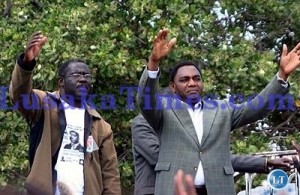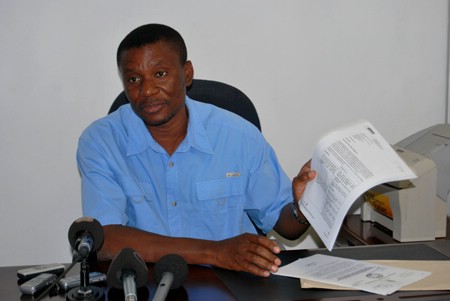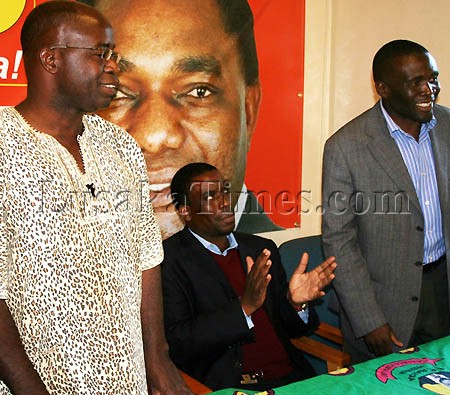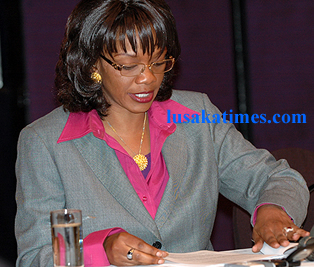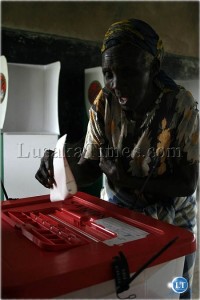
By Chanda K. Chishimba
Later this year, Zambians go to the polls to usher in a government, hopefully, of the people, for the people, and by the people. Political parties are going out in full throttle to solicit for votes from the electorates. Many promises are being made about which party will deliver the much elusive development to the poor Zambians. Some promises are tangible, but most are lip service. The choice that lies before the Zambians is whether to elect a party that prioritizes social-economic development or one which espouses security and tranquility. For most Zambians, poverty has been the main source of mistrust of politicians. Zambians yearn for a leadership that will represent their interests and not one that forgets about them after an election. Is this the year that Zambians elect, wisely, a leadership that aspires to bring development in all corners of the country, and not just in the capital city?
MMD
The current party in government boasts of having brought successful economic policies and democracy. The party has laid claim that it deserves more time in government to complete its projects. However, is this enough to win them votes in 2011? Electorates have placed huge expectations on the MMD for the simple fact that, they are the party in power and have all the instruments of power to bring about meaningful and tangible change in our country. Have they delivered according to the people’s expectations? Have they significantly reduced poverty levels, improved educational standards, uplifted the economic wellbeing of our people, and secured a peaceful and co-existent environment? Have the MMD provided a fair platform for all political players to air their views? How much of their manifesto has circulated to the electorate for them to make informed decisions? Have they lived to the meaning of their manifesto?
Numerous questions have been asked about the MMD government and its developmental achievements or lack thereof. Zambians have seen foreign investors flock into the country through the mining and banking sectors. Has all this foreign investment trickled down to the poorest Zambian? A reduction in inflation has been registered as well as a swell in foreign reserves, but these indicators have not brought increased savings for our people, they have not improved the livelihoods of the majority, and they remain figures on paper. Hospitals are dilapidated, roads are an eyesore, schools are run down, and we still have the problem of street kids to grapple with. Zambians strongly believe that their government has no excuse for failing to uplift the living standards of our people. We yearn for a true leadership that will deliver on their promises. As the party in government, we want to hear our leaders talk more about development, enlighten the majority of our people about their programs, involve as many ordinary citizens as possible in development, and not talk about impertinent issues every day. We do not need to know who is more handsome between Rupiah Banda and Sata. We cannot feed from such issues. Our current leaders in government need to focus on issues such as reducing the size of government, addressing the high Pay As You Earn (PAYE), corruption, political violence, tribalism, improving education, hospitals, roads, and creating a platform for all Zambians to secure a better livelihood.
PF/UPND PACT
As the biggest opposition political pact in the country, the PF/UPND Pact is expected to provide enviable opposition to the MMD. The Pact needs to show Zambians what kind of leadership they would provide if they managed to form government this year. The squabbles they engage in on a daily basis do not inspire the least of electorates. They need to explain to the Zambians what their manifestos will do for us. It is easier for them to pour scorn on policies of the current government, but this does not establish what they are really about. If the reason for the Pact is to oust the MMD from government, then their energies are misdirected. The Pact needs to go beyond petty squabbles and learn to provide leadership. How difficult can it be for mature individuals to fail to achieve these simple goals? The Pact needs to explain what economic policies they will employ to bring the country out of its economic malaise. The Pact needs to explain how they would address the never-ending constitutional amendments, which seem to gobble up billions of Kwacha. How would they approach the excessive powers enjoyed by the executive? Would the Pact rekindle the confidence that Zambians had in their government at Independence? Would they address why we have to send ailing leaders out of the country for specialist treatment when we have local hospitals in the country?
Every Zambian understands that development cannot be achieved in one day. However, our country is not one day old. We have been a sovereign nation for 46 years, yet we still wallow in poverty. The agitation for Independence has been rendered futile because of the actions or inactions on our part. We have destroyed the very fiber that could have enhanced our livelihoods. Surely, a country of 12 million people cannot seem to find a path to successful implementation of sound and progressive policies. It is so disheartening that leaders waste their time bickering over irrelevant issues. It is time that our leaders rearranged their priorities and focused more on tangible development. We are certainly tired of looking to a brighter future when we feel NOW IS THE TIME.


